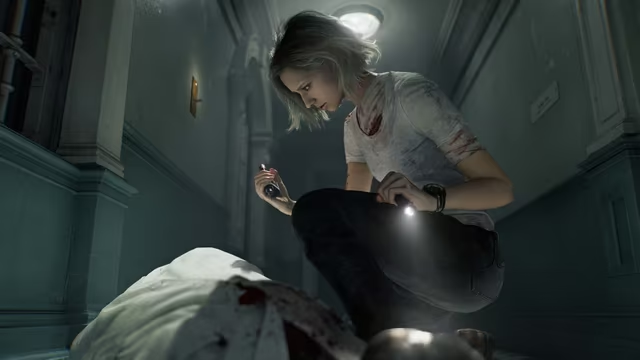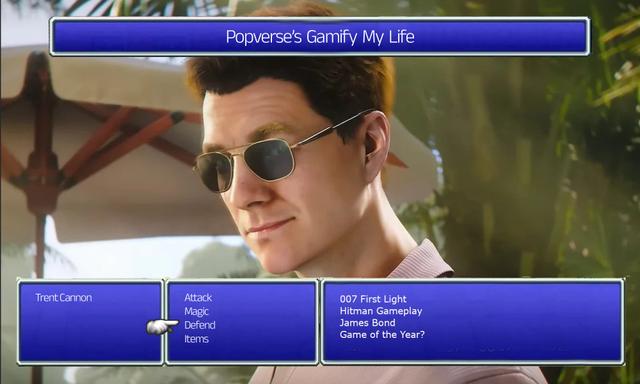If you click on a link and make a purchase we may receive a small commission. Read our editorial policy.
Ted Lasso hasn't gotten worse, people just don't understand the show
Ted Lasso hasn't changed its tone, we may have taken the wrong lessons from its first season though...

Online chatter seems to be turning against Ted Lasso in its (probable) final season.
Critics and fans have been calling the third season of the show disappointing, frustrating, and a break from the show’s happy-go-lucky tradition. And I... completely disagree with those judgments.
I think the third season of Ted Lasso is part and parcel with the first two seasons of the show, and has built upon those first two seasons to great (though often messy and unbalanced) success.
Here’s why I think some people are put off by Season 3, and why I think Ted Lasso is one of the most interesting shows on teleivision right now.
Ted Lasso was never about the power of being positive in the face of adversity

In the early days of Ted Lasso, all anyone could talk about was how the show was the pinnacle of positivity. During the bleak moments of the early pandemic (and a particularly bleak-themed moment of contemporary television), people needed something positive to latch onto. This positivity spin was a big aspect of the show’s early success.
But that wasn’t really what the show was about, was it?
When you go back and watch early episodes, especially when we learn about why Ted and his ex-wife split up, you can see where the breadcrumbs are being laid for the theme that positivity… can be harmful. Yes, Ted Lasso's positivity and constant willingness to find the best in people helps the team and helps many team members heal, but it isn't great for him, and sometimes isn't great for his loved ones either.
This theme has always been part of the underbelly of the show, even when the show puts on its "Believe" hat, though that may not be what we took away from it at the time. So why do we think that the show is about the power of positivity, when it seems to be arguing the opposite?
Well, it may be because we all began to watch the show at a very specific, emotional time in our lives when we were really looking for something positive and fun. That’s the cool part about art. We bring things to it, pull out the message that we need to hear. But what we bring to a show can also shape the way we interact with it too, and our expectations and preconceptions might keep us from seeing what a show is actually trying to do. The positivity of early Ted Lasso may have been a big part of its appeal, but that doesn't mean it was what the show was about.
Ted Lasso (the character) changes people, but it isn’t only through his positivity. In fact, his positivity is something that slowly but surely affects him in a negative way, keeping him from being able to connect to the people around him in any way that he needs, keeping him from being able to take care of himself. Ted Lasso changes people by giving them chances. This is why Nate's arc (which a lot of people didn't like) lands so strong in the most recent episode. This is why, Rebecca's first arc and Ted's instant forgiveness of her is so powerful, even if it was so sudden it felt silly at the time.
But now that I mention it, it is worth nothing that...
Ted Lasso is actually a very weird show plot-wise

Yes, Ted Lasso is a weird show, with strange, often awkward, pacing and idiosyncrasies that can make the series feel like an afterschool special.
Also, what’s the deal with Nate’s strange girlfriend?
What’s the deal with Keeley’s strange girlfriend?
What’s the deal with Beard’s strange girlfriend?
Okay, so the show has a girlfriend problem too. In fact, it has a lot of problems. Sometimes its attempts at caricature works, sometimes it doesn’t. It often treats its side characters like children. Plus, what’s the deal with the fortune teller?
Again, I am not arguing that the show is perfect or that it lacks flaws. I just don’t think the show has changed drastically from what it was (beyond getting longer episodes, which I don’t mind personally). The problems of this season were there in the second season and there in the first. In fact, now that the show has two seasons to build upon, I think it’s using its characters and its episodes more creatively than ever, each facing individual problems centered around the same theme of is how second chances influence people.
Look at the development of Jaime Tartt. Look at Ted. Look at Rebecca (and on that side, look at Rupert getting a human moment). Look at Sam. Look at Roy. Yes, the show can be clunky and on the nose and weird, but also look at the deep development it has accomplished with its characters in three seasons. The technique may have been roundabout, but I wouldn't argue with the results.
I saw a review last week proposing that Ted Lasso would be the next Game of Thrones, in that the writer wasn't sure all of the plot points could be wrapped up in that final episode, but I don't think that's a question worth asking. To me, Ted Lasso isn't about the plot. Sure, I don't want to be left hanging with an unsatisfying episode. But really, I'm more curious about what the show will choose to say with the amount of time it has left.
But for those who do care about the show's plot, I am hesitant to believe that the last episode will spend the time it has left to wrap up every single plot. Especially because...
Ted Lasso is a very weird show, structurally

One of my favorite epsodes of Ted Lasso also happens to be one of its most divisive episodes— the Coach Beard episode 'Beard After Hours.' I found Beard After Hours to be surprising and additive to the season, even though it didn’t “further to the plot” of the show. Others thought it was too slow, that it felt tonally different to the rest of the series. This reaction echoes a common complaint about the show, that certain arcs are picked up and dropped, that the show meanders too much. To me, it felt like an example of what Ted Lasso dares do that most television doesn't, take precious time to do something weird and tonal (and hang a giant glowy moon in the sky).
This episode also established what I think is the best way to watch the show, treating it more like an album than an episode-by-episode drama. Themes flow in and flow out. We get a strange storyline and then never see it again. But it’s the ideas that the show is introducing, the way those ideas pair with each other, that make it an interesting show to watch. Ted Lasso isn’t meant to be a straightforward narrative the way that something like Succession or House of Dragons is. It’s a show based on mostly vibes and likeable characters and themes. It's experimental, and it mostly works.
Ted Lasso, alongside shows like For All Mankind and Mythic Quest, has shown that Apple TV+ has become one of the most daring of the streaming services, taking huge narrative swings and finally really taking advantage of the opportunity to vary episode length in a way that most streaming services have failed to. And I do think that Ted Lasso is one of the most fascinating shows, especially structurally, on the air right now.
I don’t think Ted Lasso is a perfect show. It hasn’t even broken by top five shows of the year any year its been on. But I do think it’s doing something bold and new. And I think everything it's trying to pull off with its third season has been built up from its very first episode. So, sure, like the show or not, but maybe give it another watch and see what it's trying to say, instead of trying to make it fit what you thought it was.
New Ted Lasso merchandise includes headbands and a dartboard (and finally, a licensed soccer ball)
Did Black Adam's failure have anything to do with Fast X's big surprise?
Follow Popverse for upcoming event coverage and news
Find out how we conduct our review by reading our review policy
Let Popverse be your tour guide through the wilderness of pop culture
Sign in and let us help you find your new favorite thing.
















Comments
Want to join the discussion? Please activate your account first.
Visit Reedpop ID if you need to resend the confirmation email.